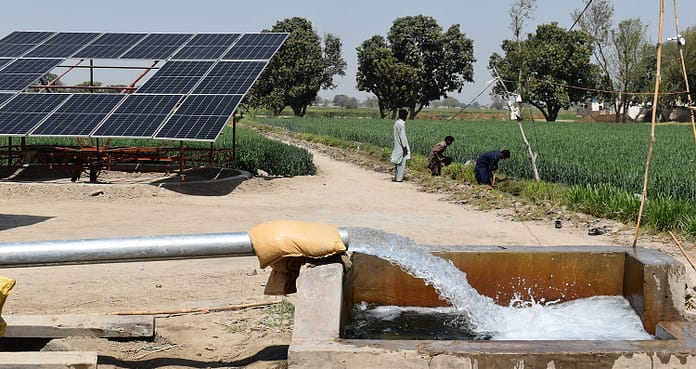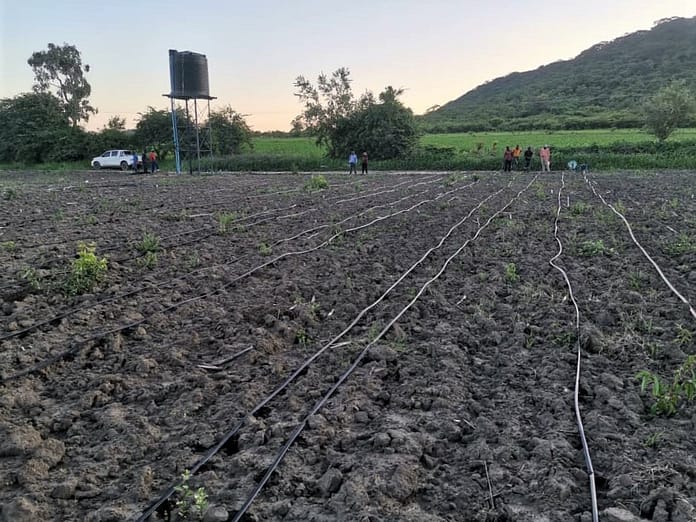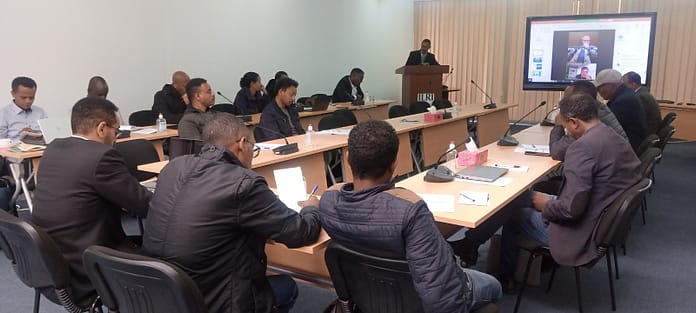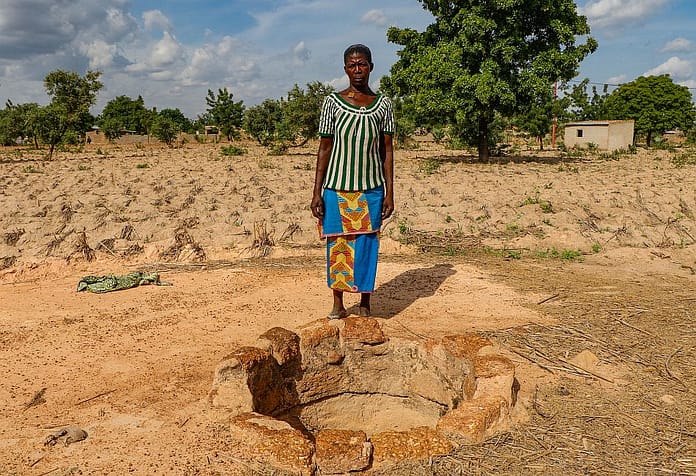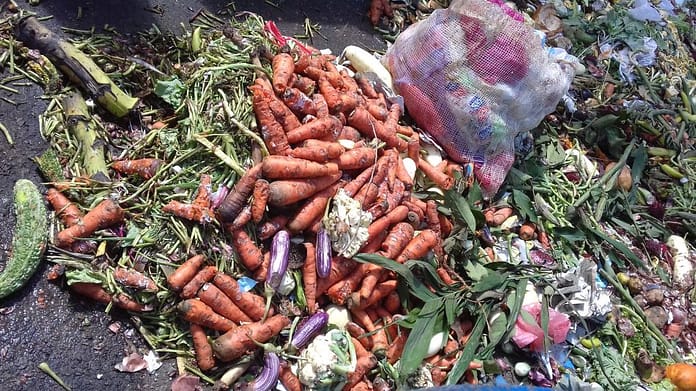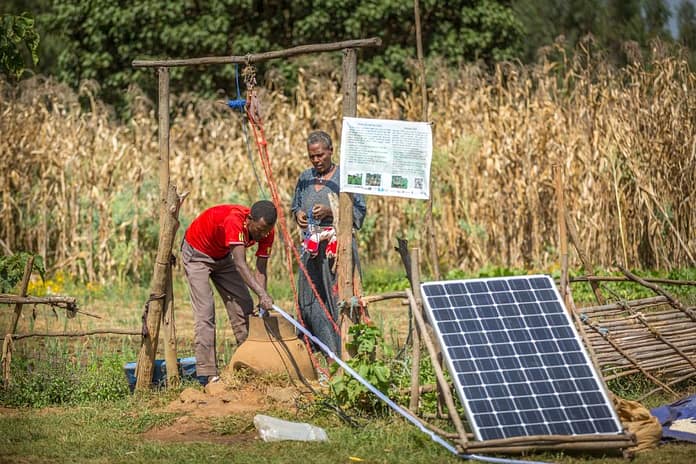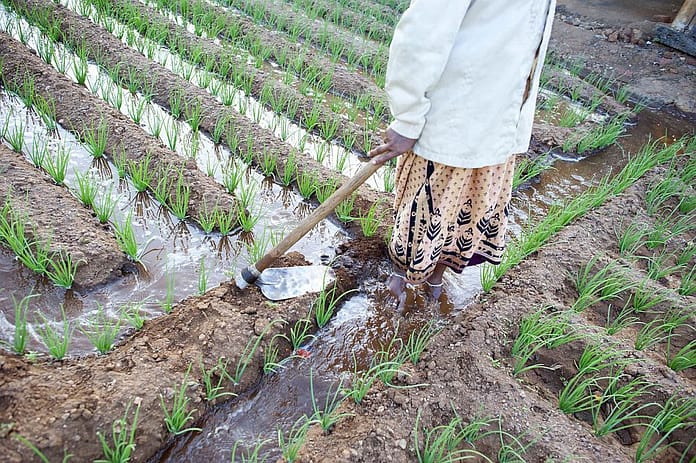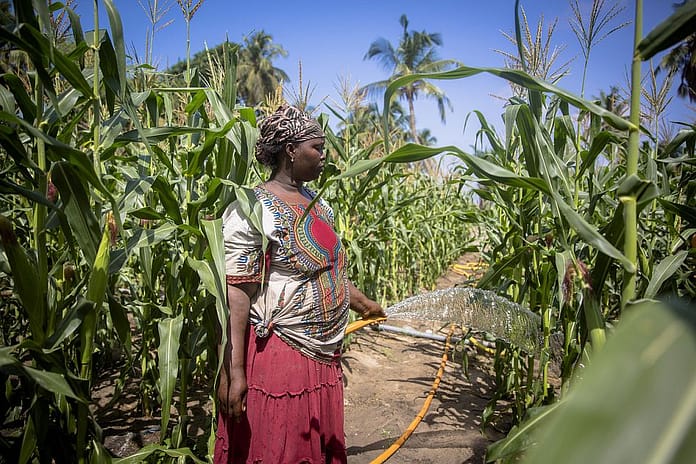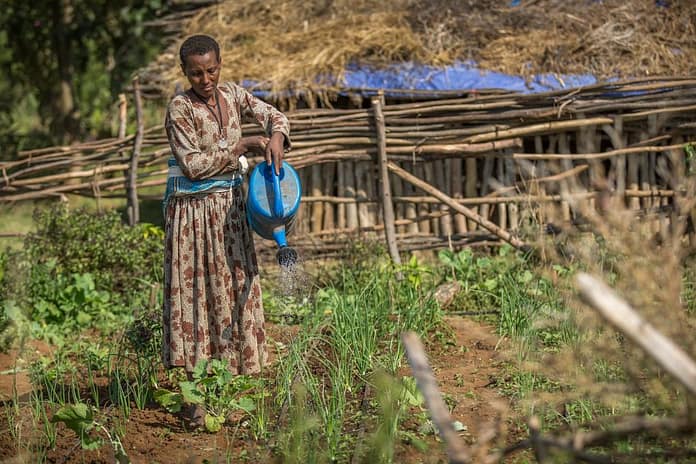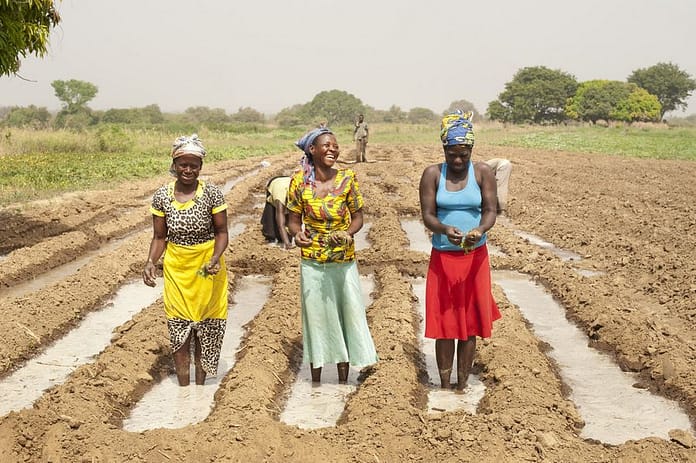New IWMI research indicates over 2 million hectares potentially suitable for solar photovoltaic (PV) pumping – and proposes sustainable business models for capturing the solar market opportunity.
By Solomie Gebrezgabher, Researcher – Economics, IWMI, and Mansoor Leh, Researcher – Spatial Hydrology, IWMI

Across Africa, governments are promoting small-scale irrigation as a climate adaptation measure. In addition, rising incomes and changing dietary patterns among middle-income urban consumers are making production of high-value irrigated crops an attractive market opportunity for small farmers. But a lack of an energy source to pump water is preventing many farmers from cashing in on this opportunity.
In Ghana, most small-scale irrigators do not have access to a consistent supply of electricity. Those who do may find it too unreliable and expensive for irrigation. Petrol and diesel pumps, which have high fuel and maintenance costs, are also expensive for smallholders.
A recent IWMI study argues that solar photovoltaic (PV) irrigation pumps offer an economically and environmentally sustainable alternative to fossil fuel pumps. Private sector companies are eager to capitalize on this potential by expanding the market for small-scale solar irrigation. For these companies, serving small-scale irrigators, who have traditionally been perceived as high risk, can be profitable if the right business models are applied. However, use of solar irrigation systems remains limited. New approaches are needed to expand farmers’ access to solar pumps that are appropriate in cost and scale.
Mapping the suitability of solar irrigation
The study assessed the feasibility of smallholder solar irrigation by integrating elements of business planning and business modeling with agricultural land suitability mapping. Suitability mapping takes into account land use, topography, soil, water availability and market information to assess the potential of expanding solar irrigation. Consideration of water availability is particularly important, as expansion of solar PV pumps in areas with limited resources or storage can lead to excess groundwater pumping and aquifer depletion.
Overall, the assessment showed that areas with groundwater are most suitable for solar PV pumps. A combined analysis of surface water and groundwater sources up to 25 meters deep indicated that 2.3 million hectares could be suitable for solar PV pumping. The largest potentially suitable area was found to be in northern Ghana, which has long, dry summers and high irrigation demand.
The study also analyzed the policy and regulatory environment, financing mechanisms and technology supply chain, all of which are crucial to create a robust market for solar pumps and related equipment.
Finally, the study developed and evaluated three possible business models that could address the high up-front costs of buying a pump. They are:
- Business model 1: Individual ownership with multiple-use services
In this model, a farmer purchases a solar PV pump to irrigate his/her own farm, meet other needs such as livestock water, home gardening and domestic uses, and sells water to neighbors.
Despite the economic benefits of solar pumps for irrigation, the high initial investment is a major limiting factor. In Ghana, uptake of the technology currently relies on donor subsidies, which have limited potential to reach many farmers. For this model to be successful, financing schemes such as pay-as-you-own, that spread the costs of a pump over time need to be explored.
- Business model 2: Cost-sharing
An alternative to individual ownership is a shared model, where a group of farmers jointly own a solar PV irrigation system. Group members share the costs and risks as well as the benefits. For the model to work, the group must be cohesive, with clear rules on water-sharing mechanisms, maintenance responsibility, financial management and conflict resolution.
- Business model 3: Solar irrigation service provider
Under this model, the solar PV system is owned, operated and maintained by a supplier or other third party. With the help of low-cost loans, partial grants and other financial incentives, entrepreneurs own and operate solar PV systems that provide irrigation water services to farmers for a fee. Entrepreneurs then use the fees from water sales to repay the loan.
In addition, instead of promoting individual ownership of solar pumps that might be underused, setting up young entrepreneurial farmers as solar irrigation service providers could help create a competitive water market by offering farmers irrigation services at an affordable price.
Achieving solar irrigation potential
The study shows that potential for solar PV irrigation pumps is substantial. Achieving this potential will require strengthening the policy environment, monitoring water abstraction and use, and making finance available at a reasonable cost along with complementary inputs such as fertilizer and improved seed. Moreover, the proposed business models require strong farm and business management coupled with good links to markets for produce. This underscores the need for a comprehensive approach that involves and benefits all stakeholders. If effectively implemented, the impact on farmers’ productivity and economic resilience could be immense.


